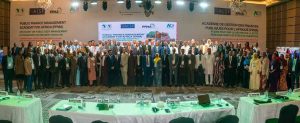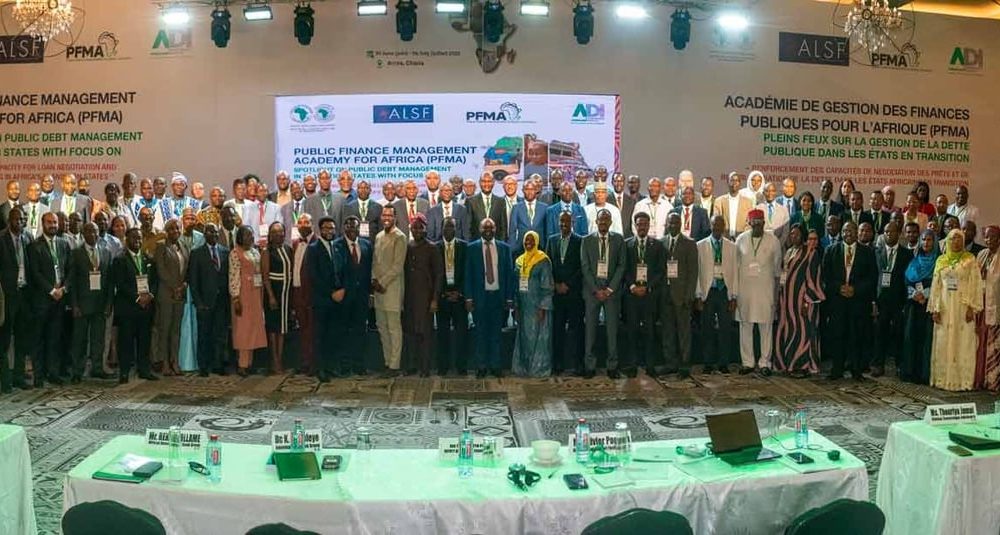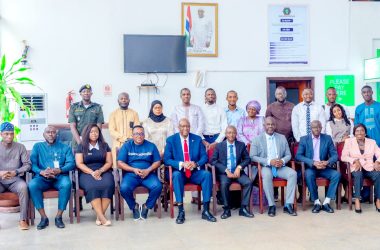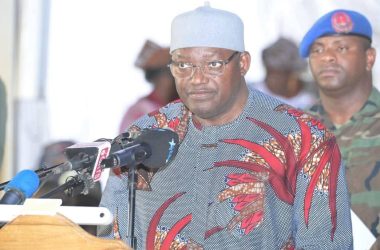The Gambia and several other African countries are stepping up efforts to better manage their national debts as part of wider reforms to foster economic stability, inclusive growth, and long-term development.
At a recent week-long regional training in Accra, Ghana, organised by the African Development Institute under the African Development Bank, representatives from across the continent came together to share lessons and strengthen their ability to negotiate loans and manage sovereign debt more effectively.
The event, held from 30 June to 4 July 2025, was part of the Bank’s Public Finance Management Academy for Africa (PFMA). It focused on Africa’s Transition States countries like The Gambia that are among the continent’s most fragile and vulnerable, facing a mix of political, economic, and environmental pressures.
The Gambia’s experience stood out during discussions, particularly for its progress in lowering its debt-to-GDP ratio, which dropped from more than 120% in 2017 to 74% by the end of 2024. This has been made possible by regular debt sustainability assessments and a stronger grip on public spending.
The training in Accra, themed “Strengthening Capacity for Loan Negotiation and Debt Restructuring in Africa’s Transition States”, was the second of its kind, following the first held in Addis Ababa last year.
Speaking at the event, Dr. Eric Ogunleye, Director of the African Development Institute, highlighted that solutions to many of Africa’s financial challenges already exist within the continent itself.
“We have a lot of good lessons within Africa, that we can learn from,” he said. “African countries have solutions for most of the problems facing them, but we need to look inward enough.”
Sierra Leone also offered a notable example of reform, having reduced its inflation rate drastically from over 50% in late 2023 to around 7.5% in April 2025 while taking concrete steps to clear its debt arrears and build confidence in the economy.
Ghana, although not a Transition State, was showcased as a model for effective debt restructuring and economic recovery. According to Ghana’s Deputy Finance Minister, Thomas Nyarko Ampem, Ghana has recently enjoyed one of the fastest credit rating upgrades in the world following its debt restructuring.
The country recorded 5.3% GDP growth in Q1 of 2025, beating expectations, while inflation has dropped to its lowest levels since 2022. Ghana has also introduced tough new laws, including strict penalties for unauthorised government borrowing and extrabudgetary spending.
Zambia, another non-Transition State, has strengthened its own debt oversight by creating a dedicated Debt Management Department, part of its broader strategy to restructure its public debt under the G20 Common Framework.
A standout idea from the Accra training was the proposed creation of an “Accra Club” a borrower coordination platform similar to the creditor-focused Paris and London Clubs. The aim is to give African nations a stronger, united front in dealing with lenders and negotiating fairer terms.

The African Development Bank continues to play a major role in these efforts, supporting countries through capacity-building programmes like the Africa Debt Managers Initiative Network (ADMIN), the Debt Management Forum for Africa (DeMFA), and the PFMA’s ongoing Spotlight series on public debt management.
As Dr. Ogunleye told participants, “The African Development Bank is your bank. We stand ready to work with all partners everywhere, not just in proffering solutions, but also in implementing them for sustainable impact and outcomes.”





